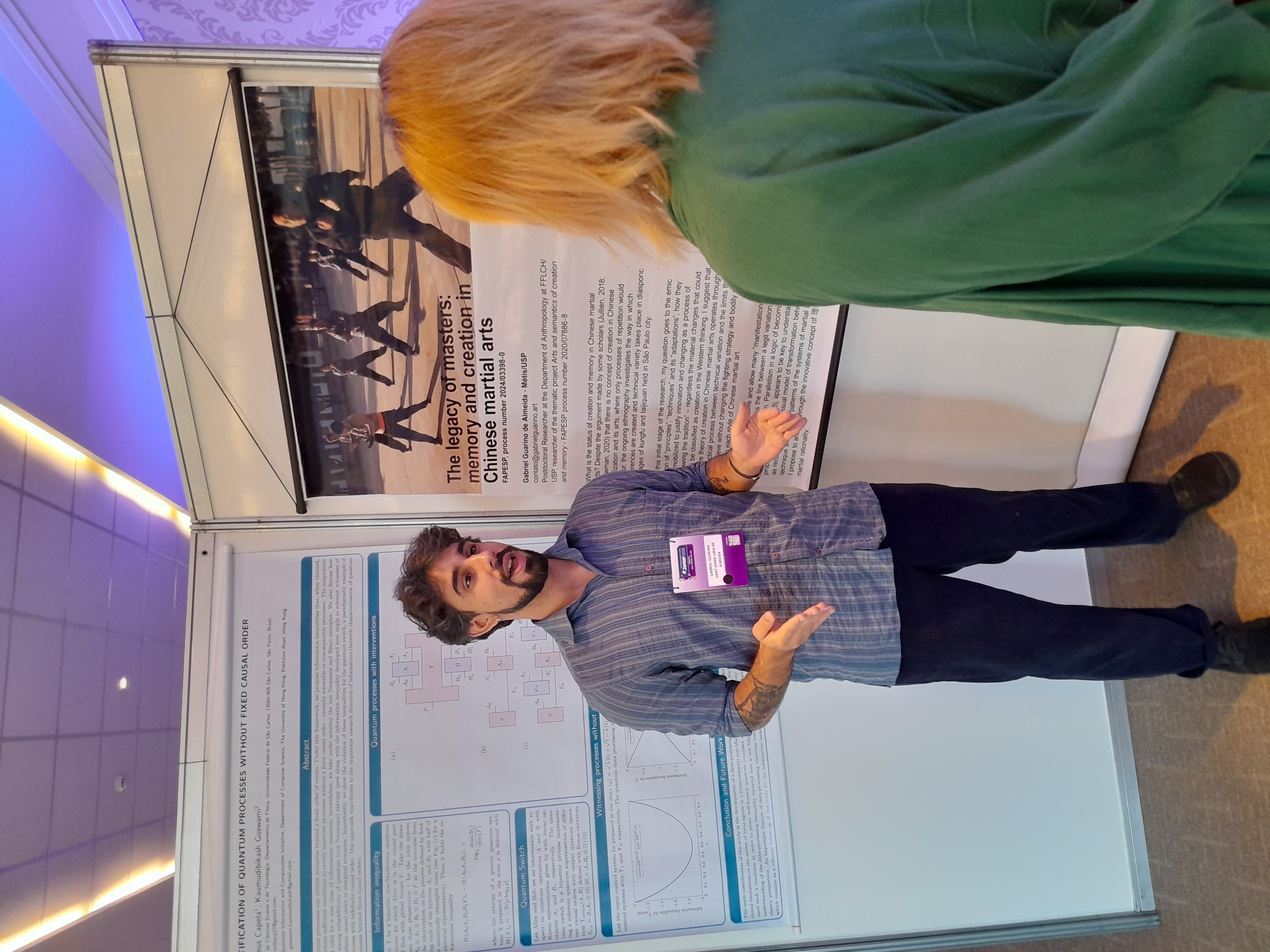Gabriel Guarino, pós-doutorando do Métis, participou do evento Escola Fapesp, entre os dias 08 e 12 de dezembro, apresentando dados iniciais de sua pesquisa financiada pela FAPESP (Processo n. 2024/03398-0), vinculada ao Métis (Eixo 2) e executada no Departamento de Antropologia da FFLCH/USP.
A Escola FAPESP reuniu 120 bolsistas de pós-doutorado de todo o país em duas escolas: uma dedicada às Ciências Exatas e Naturais, Engenharias e Medicina e outra às Humanidades, Ciências Sociais e Artes. Os pesquisadores pós-doutorandos apresentaram suas pesquisas na forma de pitch presentations e pôsteres, em sessões voltadas a criação de diálogo e aprofundamento de relações de pesquisa. A língua inglesa foi o idioma oficial do evento, voltado à internacionalização: pesquisadores veteranos do Brasil, Estados Unidos e Europa realizaram palestras sobre carreira e pesquisa, como forma de inspirar jovens pesquisadores.
Para mais informações, confira o link.
Veja a seguir o resumo da pesquisa de Gabriela Guarino:
This communication presents initial findings from an investigation of the Chinese martial arts related to the ideas of creation and memory, in dialogue with the Thematic Project Arts and semantics of creation and memory (Process No. 2020/07886-8) in the post-doctoral level. The general objective of this investigation is to think about the conceptions of creation in Chinese martial arts, in attention to the way in which differences and technical variety take place in it, despite the argument made by some scholars that there is no concept of creation in Chinese civilization, as that in their arts processes of repetition, imitation and reiteration of tradition prevailed. Through the encounter between sinology and anthropology, I have been investigating this general problem – the status of creation and memory in Chinese martial arts – as well as other problems that this art presents: the notions of kinship and expanded family, established in kungfu/taijiquan schools from a Confucian ethics, as well as the relationships between nature, humanity and animality that permeate the imitation and learning of body techniques. The ongoing ethnography is focused on the Shàoshèng Centro de Cultura Oriental, a Brazilian-led pedagogical community located in the central region of São Paulo. By following the exchange between apprentices, instructors and masters who travel the Americas and China, I analyze the circulation and production of the body techniques taught there – a path that leads to the analysis of both the Chinese genealogies of their fighting styles, as well as the composition of the technical inventories that are brought and maintained in the city of São Paulo. Contributing to the agenda of the aforementioned Thematic Project and relying on it to expand the findings, I present initial hypotheses to think about a native theory of creation in Chinese martial arts, with focus on the conceptions of masters and apprentices regarding the constitution of martial lineages, families and styles.

![]()

